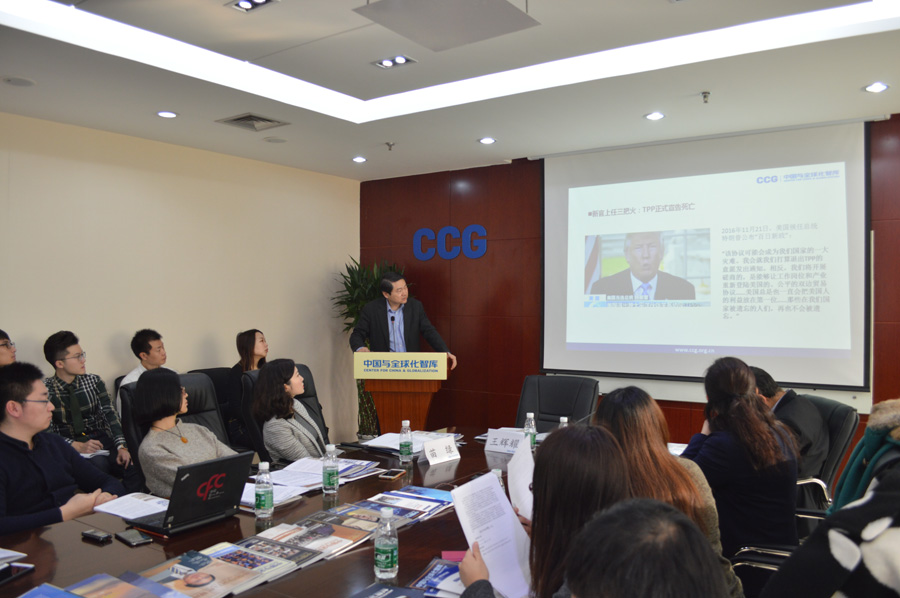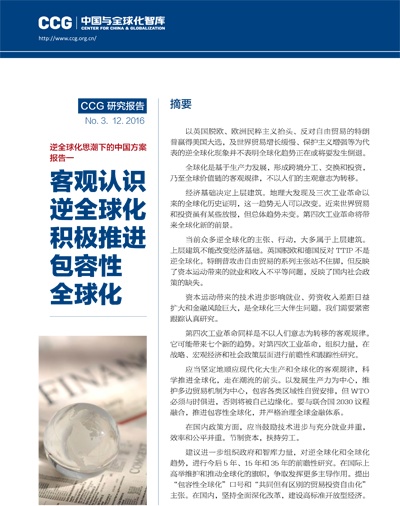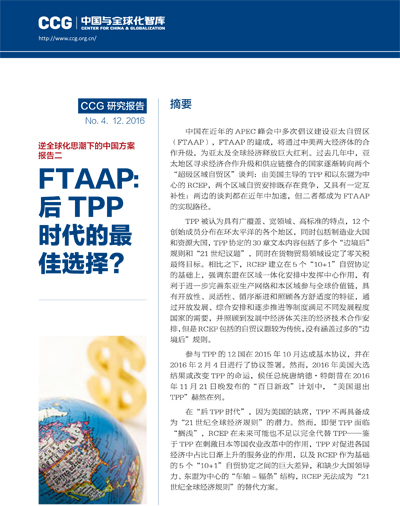CCG Reports Believes Globalization Irreversible
June 05 , 2019
As the world awaits the solution to the latest wave of de-globalization, the Center for China and Globalization released two study reports on Dec. 8 that recommends the policies and measures on how to reestablish world trade system after the US-led Trans-Pacific Partnership initiative comes to a dead end.

One report, titled “Understand De-Globalization Objectively and Push Forward Inclusive Globalization Proactively,” is the first of its kind that provides in-depth analysis of de-globalization phenomena and proposes the idea of “common but differentiated trade and investment liberation”.
The report reviews the cases considered reflection of de-globalization, such as Brexit, Germany’s anti-TTIP movement and Donald Trump’s election as the next US President, and insists that globalization, an inevitable outcome of economic development, will not be changed or reverted by man’s will.
However, the report identifies three major side-effects of globalization – rising unemployment caused by technology advancement, widening gap of income, and growing financial risks. It also highlights seven new emerging trends that could accelerate globalization and also incur more resistance, including traditional MNCs need to redistribute their production factors; application of artificial intelligent, robots and self-driving technology is leading to more unemployment.
The report suggests to move forward globalization in a scientific way, focusing on developing productivity and maintaining multilateral trade system while supporting regional free trade schemes. Domestically, the report believes that China should foster technology advancement and ensure employment, and gives equal attention to efficiency and fairness.

The other report, “Free Trade Area of the Asia-Pacific: Best Option in Post-TPP Era?” was published after the US President-elect Donald Trump announced to retreat from TPP in the first day of his presidency. The report points out that a TPP without the United States will lose the potential to set rules for global trade in the 21st Century. The Regional Comprehensive Economic Partnership may be a replacement in Asia Pacific in the short term but not an ideal alternative to TPP in a long run.
The report suggests that the United States and China, as the world’s largest and the second largest economies, respectively, are playing decisive roles in the future of global economy. Whether they can cooperate with each other determines if it will move towards a more open/integrated or divisive/isolated economy. The two countries are advised to seek consensus on global economic norms and jointly push forward the FTAAP establishment to eventually benefit from the integration of value chain in Asian Pacific and create more benefits to the people in the region and the world.






